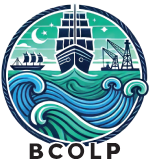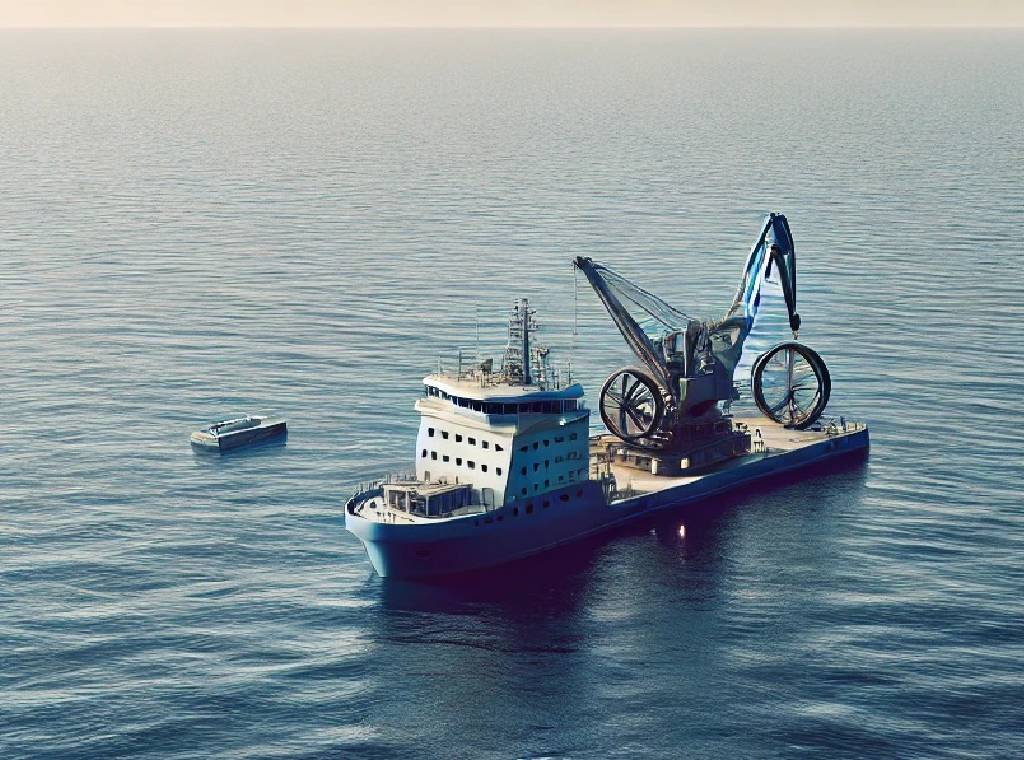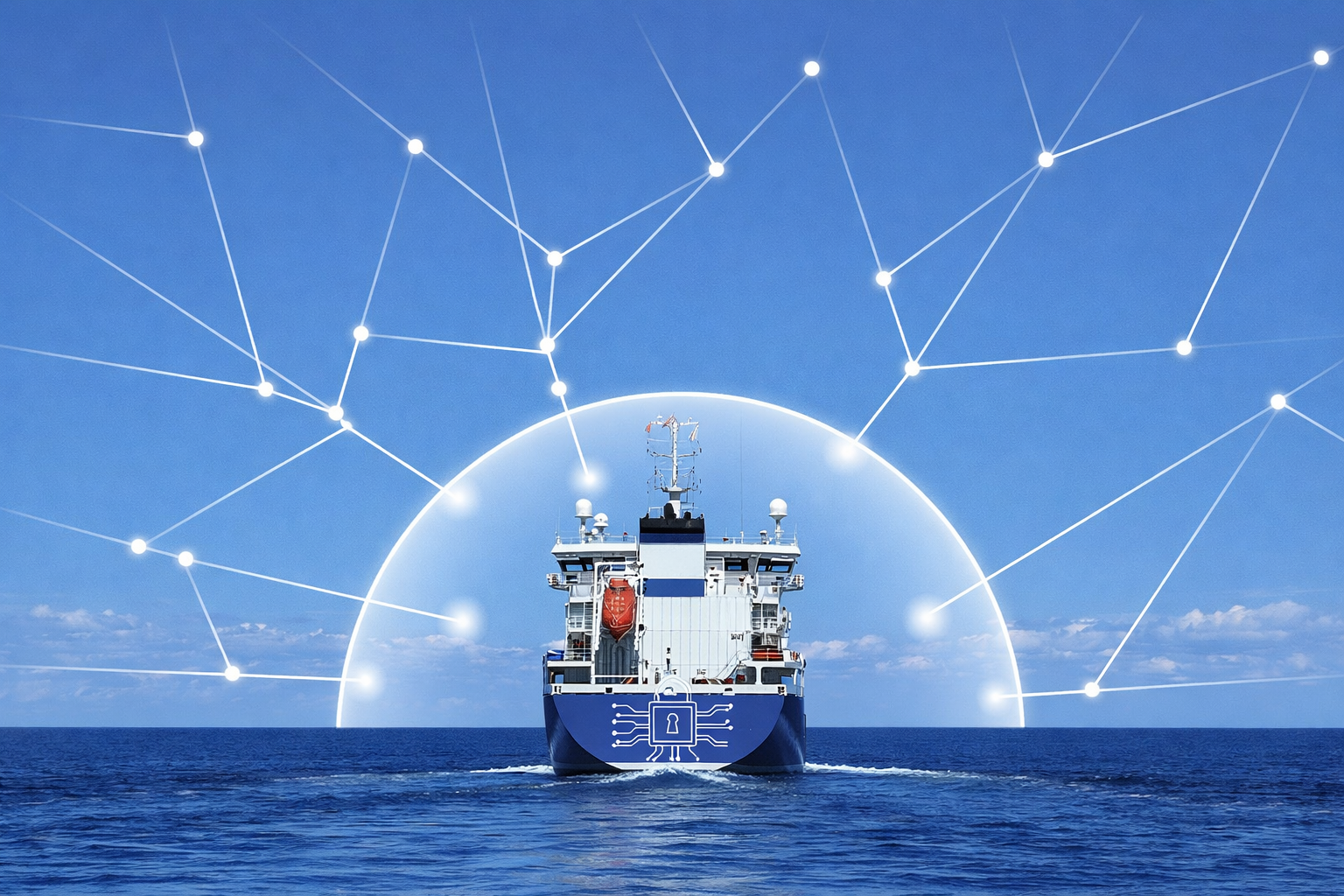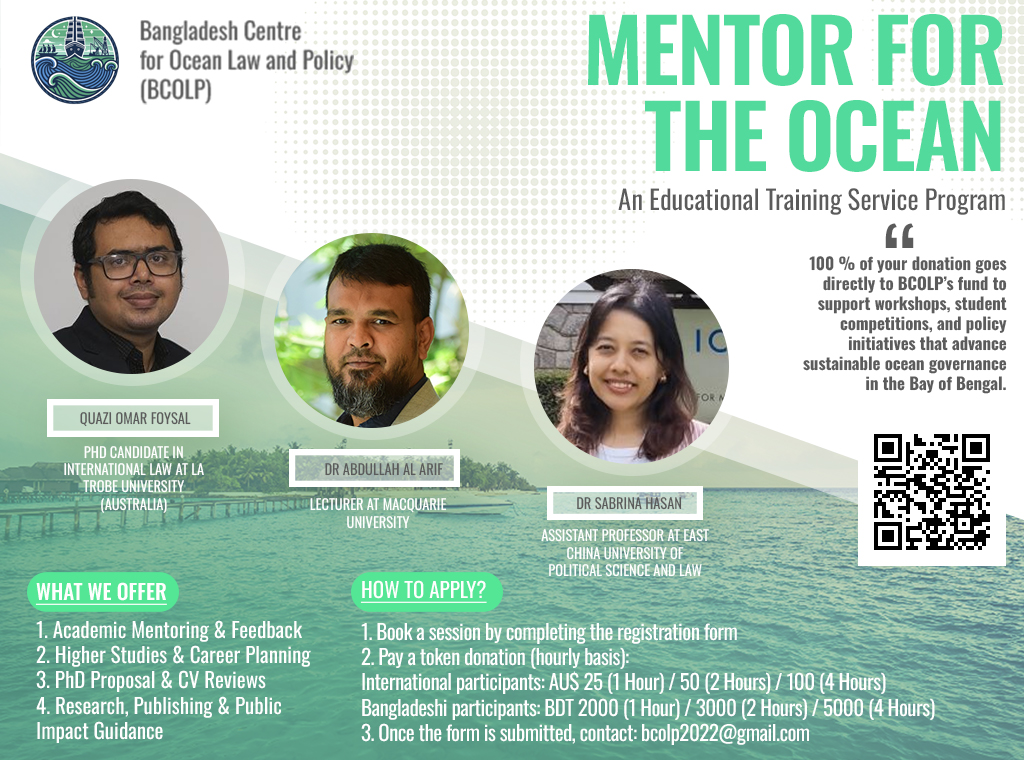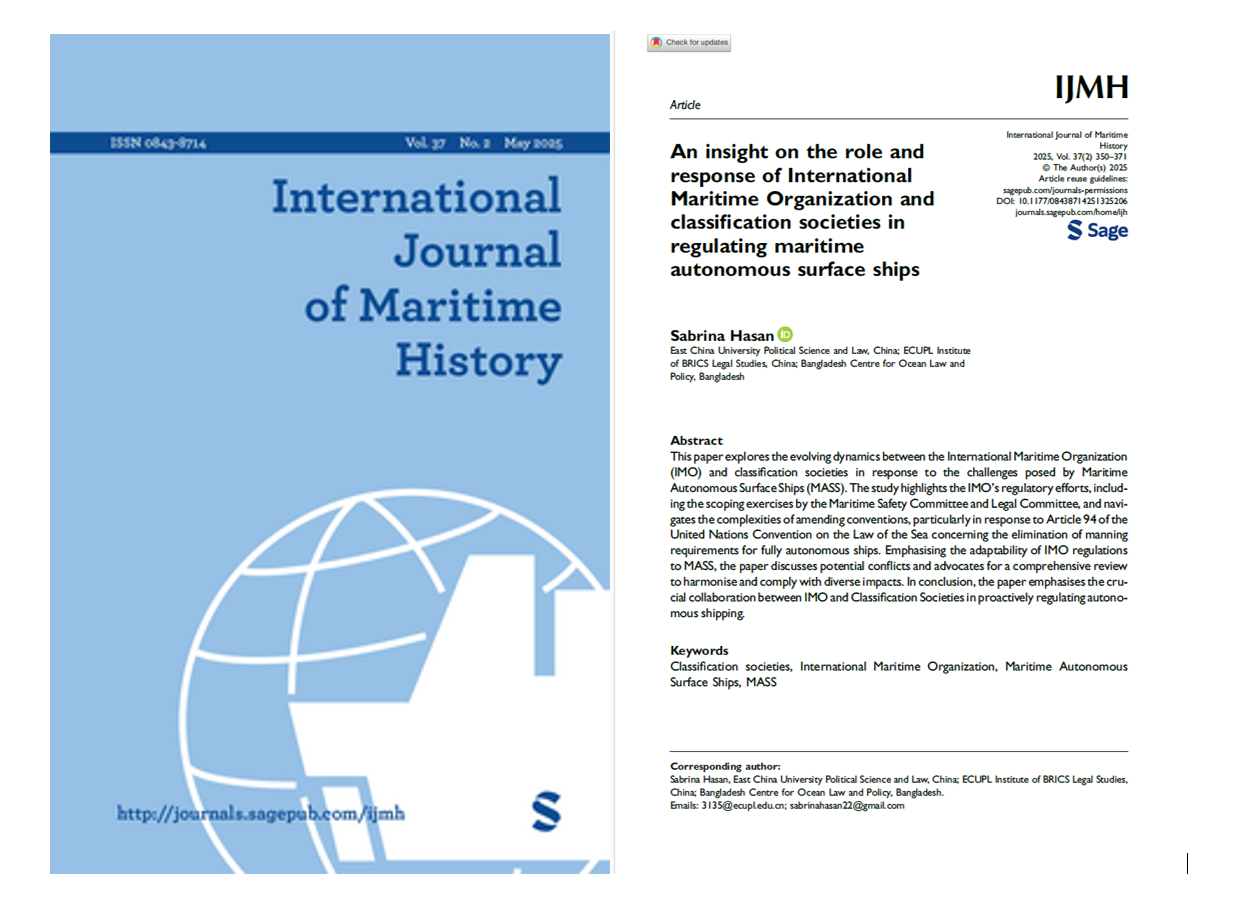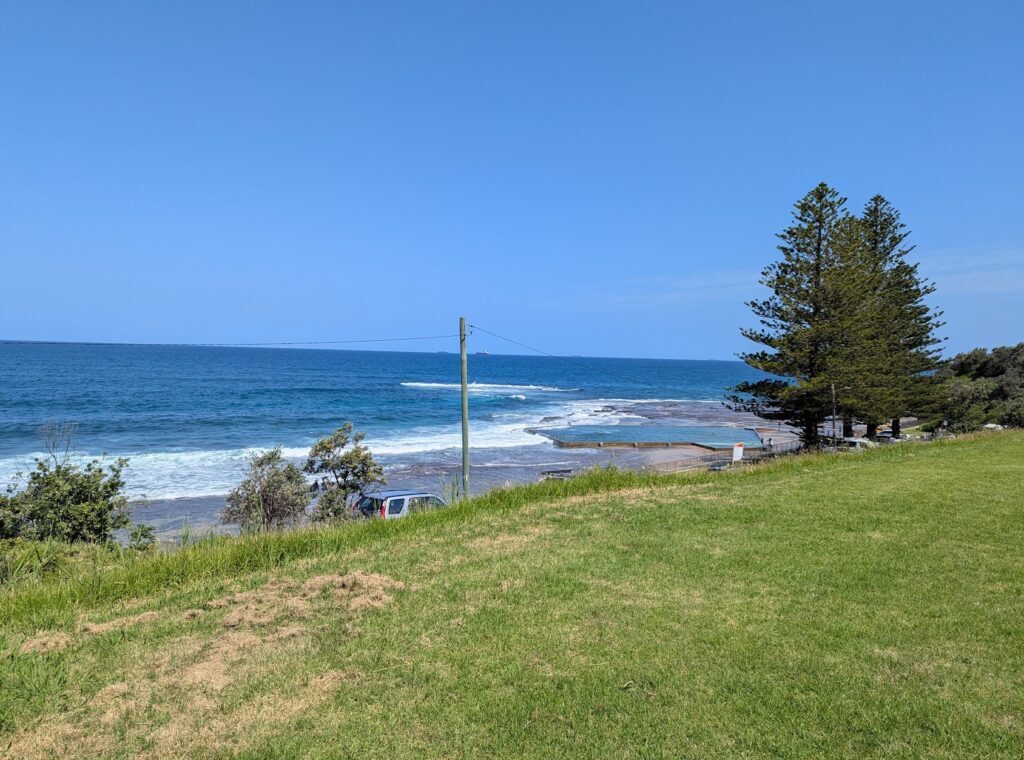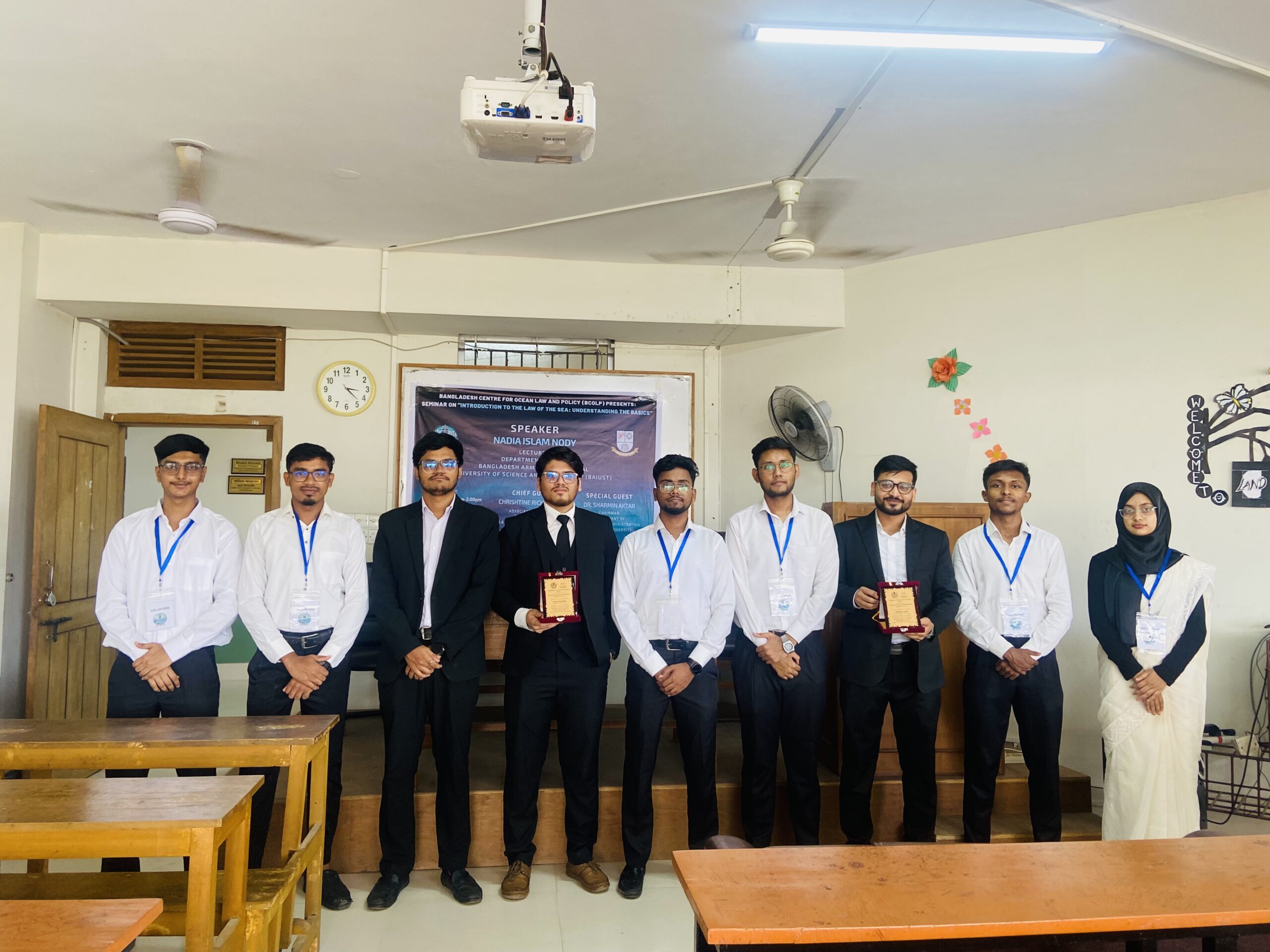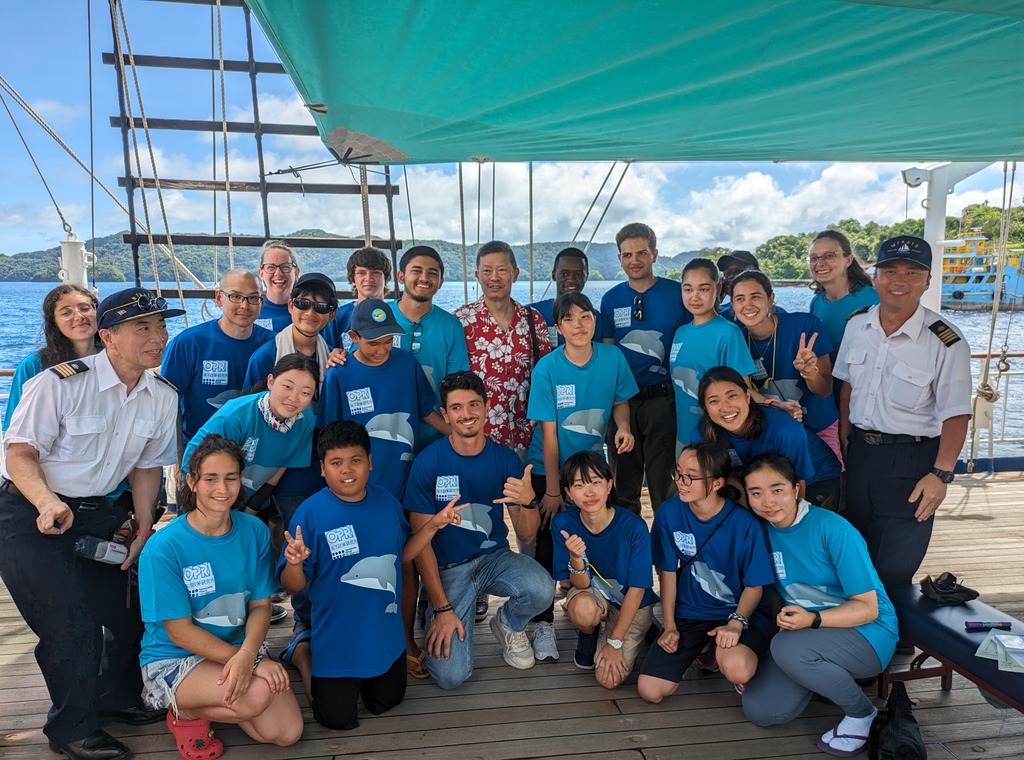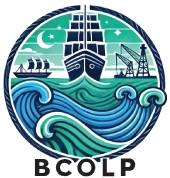Shah Maruf Uddin Ahmad
- Introduction
Since settling its maritime boundary dispute with Myanmar and India in 2012 and 2014, respectively, Bangladesh has placed the concept of a ‘blue economy’ at the forefront of economic planning and development (1). Blue economy ‘fosters the idea of exploiting the untapped potential of the marine environment using smart solutions and innovations for increasing food security, improving nutrition and health, alleviating poverty, creating jobs, lifting trade and industrial profiles while protecting ecosystem health and biodiversity, and improving regional security and peace’ (2). Considering the (deep) seabed mining as one of the ‘emerging’ sectors of the blue economy, Bangladesh put it in the country’s Blue Economy Development Work Plan (3).
While deep seabed mining can be a window of hope for economic growth, the associated risks cannot be discarded altogether—seabed mining is inherently destructive for the marine environment (4). Hence, any such activity must be handled with due care, which requires, amongst others, a robust and nuanced legal and policy framework. This blog analyses how Bangladesh can approach the nuanced challenges posed by mining activities within its national jurisdiction of the Bay of Bengal to ensure a more sustainable ocean governance.
- Deep Seabed Mining: The Current Legal and Policy Framework
Even a decade after getting the maritime boundary delimited, Bangladesh could not start deep seabed mining activity: it is still at the exploration stage, yet on a small scale. The Country has 15 deep sea blocks covering 52,397 square kilometres, which are believed to store enormous mineral resources underneath them (5). Recently, 17-103 TCF gas hydrates containing vast amounts of methane have been discovered in the Bay of Bengal (6). If these hydrates can be extracted, Bangladesh will ‘enter a new era of energy,’ reducing its import dependency, which is ‘the root cause of [its] energy crisis’ (7). Two US companies, ExxonMobil and Chevron, also submitted proposals to explore the deep sea blocks (8). If the government gives permission, these companies must work under strict environmental regulations. Unfortunately, the specialized legal and policy framework to govern the country’s environmental aspects of mining activities is grossly inadequate.
For instance, Bangladesh has no specialized legislation dealing directly with deep seabed mining, which defines the standards to maintain and prescribes punishment for non-compliance. While the Mines Act of 1923, the Mines and Mineral Resources (Control and Development) Act of 1992, and the Mining and Mineral Rules of 2012 govern onshore mining activity, they are silent on deep seabed mining. The Territorial Waters and Maritime Zones Act, 1974 also does not include ‘managing adverse impacts on the marine environment caused by seabed mining activities’ (9). This scenario contradicts the proposition that ‘sustainable deep sea mining activity should include clear legal framework, sustainable technology and the participation of the private and public sector under strong governance’ (10).
The state of the policy framework is also unsatisfactory. The Domestic Natural Oil/Gas Exploration Policy, 2019, only provides what will be done for gas or oil exploration but says little about how those explorations will be made, except stating that ‘appropriate scientific procedure’ will be followed in exploration. Besides, the government’s decision on the rigid terms of Production Sharing Contract (PSC) with international oil companies (IOCs) is unfavourable to most of the IOCs, evidenced by leaving midway all the companies (e.g., from the US and South Korea) primarily due to poor, rigid terms of the PSC (11). Consequently, the Model PSC has been updated recently to attract IOCs, creating more favourable conditions for them (12).
The government’s policy to update the PSC terms can be seen as a good move because it can attract more IOCs for exploration. However, without framing a comprehensive law or policy integrating other concerns (e.g., environmental), such an update may suggest that Bangladesh’s approach to ocean governance is overly centred on economic priorities, placing growth above all other considerations. To avoid that fragmentation, the country needs to incorporate other paradigms in its ocean governance framework, including ‘maritime security,’ ‘ocean health,’ and ‘blue justice,’ each one of which offers ‘novel ways of conceptualizing maritime space and the problems associated with it’ (13). The following section explores how incorporating these approaches can lead to more sustainable ocean governance regarding deep seabed mining.
- Towards a Sustainable Ocean Governance: An Integrated Approach
Emphasizing economic growth, the blue economy paradigm can ‘play an important role in the economic upliftment of the country in the context of poverty alleviation, ensuring food and nutrition security, combating climate change impacts’ (14). However, focusing only on the ‘blue economy’ deprives us of essential insights other ocean paradigms offer about the problems and solutions of ocean governance.
The ‘maritime security’ paradigm, for example, shows that ocean governance is linked to insecurities and threats from, among other things, disputes over seabed resources like hydrocarbons and direct attacks on mining installations and shipping, etc. (15). ‘Ocean health’ paradigm considers ‘the ocean as a sick patient,’ (16). It seeks to conserve and restore the marine environment degraded by human intervention (17). The ‘blue justice’ paradigm concerns distributive justice and suggests that activities (e.g., seabed mining) must ensure equal profits and burdens within the stakeholders (18).
These paradigms are based on entirely different priorities, though they address a common governing space—the ocean. In deep seabed mining, for example, the maritime security paradigm will suggest vigorous law enforcement to protect mineral resources and mining installations from attacks, etc. and resultant insecurity. At the same time, the blue economy will promote accelerated industrial exploitation to generate growth and employment opportunities and tackle the root causes of insecurity (19). In contrast, ocean health will suggest reducing or abandoning seabed mining altogether due to its harmful environmental effects. In comparison, blue justice will advocate that mining activities do not disproportionately affect coastal communities, especially in the case of marine pollution due to accidents from mining operations (20). To ensure a better governance framework, all these paradigmatic approaches must be considered to settle the space between the paradigms and balance existing tensions and contradictions. Isolative thinking of any single approach may ‘lead to contradictory policies, fragmentation and a lack of cooperation among maritime actors’; hence, attempts must be made ‘to build bridges and ascertain synergies between the paradigms and their communities of practice’ (21).
- Conclusion:
The blog shows deep seabed mining can be an emerging blue economy sector with massive economic growth potential in Bangladesh. Still, it may pose a significant risk to the marine environment, which needs to be addressed from a cross-paradigmatic approach to ocean governance. Along with the ‘blue economy’ paradigm focusing on economic growth and marine resource exploitation, we need to incorporate three other paradigms: ‘maritime security’ which addresses marine threats and insecurities; ‘ocean health’ which necessitates conservation and restoration of aquatic environments; and, lastly, ‘blue justice’ which is associated with fair allocation of oceanic risks, revenues, access and control (22).
We should also integrate transdisciplinary scholarships in making ocean governance framework given that each paradigm is predominated by distinct academic disciplines—e.g. security studies, law and criminology (maritime security); economics and development studies (blue economy); marine biology, oceanography, fisheries science (ocean health); and environmental law, political theory and development economics (blue justice) (23). Such a transdisciplinary and cross-paradigmatic approach may help develop a sustainable ocean governance framework, integrating law, policy and environmental concerns.
Shah Maruf Uddin Ahmad is a Lecturer in the Department of Law at East West University, Dhaka, Bangladesh. This article was awarded First Prize in the inaugural Professor Habibur Rahman Law of the Sea Blog Competition in 2023.
References:
- Blue Economy Development Work Plan’ (Ministry of Foreign Affairs, Government of Bangladesh, 2021) 4 <https://mofa.gov.bd/site/page/ab254318-8f4a-423c-a3ef-733b80f28014/Blue-Economy-Development-Work-Plan> accessed 30 September 2024.
- Pierre Failler and others (eds), ‘Inputs for the Blue Economy Strategy of Bangladesh’ (Ministry of Foreign Affairs, Government of Bangladesh and European Union Delegation, September 2018) 4 <https://mofa.portal.gov.bd/sites/default/files/files/mofa.portal.gov.bd/page/8846c44d_cbe6_4d2d_ac1b_ae05db4926f6/Inputs%20for%20the%20Blue%20Economy%20Strategy%20of%20Bangladesh%20v9.Final.pdf> accessed 28 September 2024.
- ‘Blue Economy Development Work Plan’ (n 1) 4-5; Failler (n 2) 113.
- Van Dover and others, ‘Biodiversity loss from deep-sea mining’ (2017) 10 Nature Geoscience 464-465 <https://www.nature.com/articles/ngeo2983> accessed 28 September 2024.
- ‘Bangladesh makes renewed move to attract IOCs in offshore gas exploration’ Dhaka Courier (Dhaka) <https://dhakacourier.com.bd/index.php/news/Business/Bangladesh-makes-renewed-move-to-attract-IOCs-in-offshore-gas-exploration/7490> accessed 30 September 2024.
- Eyamin Sajid and Kamran Siddiqui, ‘Big potential in Bay as 17-103 TCF gas hydrates found’ The Business Standard (Dhaka, 5 January 2022) <https://www.tbsnews.net/bangladesh/gas-hydrate-found-bay-bengal-353539> accessed 15 November.
- Moshahida Sultana Ritu, ‘Import dependence is the root cause of our energy crisis’ The Daily Star (Dhaka, 20 March 2023) <https://www.thedailystar.net/opinion/views/news/import-dependence-the-root-cause-our-energy-crisis-3276231> accessed 28 September 2024.
- M Azizur Rahman, ‘After ExxonMobil, Chevron also intends to explore deep offshore’ The Financial Express (Dhaka, 26 September 2023) <https://thefinancialexpress.com.bd/trade/after-exxonmobil-chevron-also-intends-to-explore-deep-offshore> accessed 28 September 2024.
- Shushmita Ahmed, ‘Deep Seabed Mining (DSM) in Bangladesh and the Bay of Bengal: Challenges and Opportunities,’ Bangladesh Centre for Ocean Law and Policy (BCOLP) Blog, 7 April 2023) <https://bcolp.blogspot.com/2023/04/deep-seabed-mining-dsm-in-bangladesh.html> accessed 28 September 2024.
- International Seabed Authority (ISA), ‘Deep Sea Mining: Environmental, Legal and Technical Challenges for Developing Countries’ (ISA Briefing Paper 01/2014, Sensitization Seminar 7, Mexico, 2013) 1 <https://www.isa.org.jm/wp-content/uploads/2022/05/orem-bp1-2014.pdf> accessed 30 September 2024.
- Ashraful Islam Raana, ‘ExxonMobil proposal: A better opportunity, but much left to do,’ The Business Post (Dhaka, 12 April 2023) <https://businesspostbd.com/back/exxonmobil-proposal-a-better-opportunity-but-much-left-to-do-2023-04-12> accessed 15 November; Rahman (n 8).
- See Bangladesh Offshore Model Production Sharing Contract 2023 <https://petrobangla.portal.gov.bd/sites/default/files/files/petrobangla.portal.gov.bd/npfblock/2023-09-18-08-07-e524e678a03352ebdf4b9fd7eb725e72.pdf> accessed 28 September 2024; Rahman (n 8).
- Christian Bueger and Felix Mallin, ‘Blue paradigms: understanding the intellectual revolution in global ocean politics’ (2023) 99(4) International Affairs 1719, 1720-1721 <https://academic.oup.com/ia/article-abstract/99/4/1719/7198183?redirectedFrom=fulltext> accessed 30 September 2024.
- Md Khurshed Alam, ‘Blue Economy –Development of Sea Resources for Bangladesh’ (Ministry of Foreign Affairs, Government of Bangladesh, 31 October 2019) <https://mofa.gov.bd/site/page/8c5b2a3f-9873-4f27-8761-2737db83c2ec/Ocean/Blue-Economy–for-Bangladesh> accessed 28 September 2024.
- See Sara McLaughlin Mitchell, ‘Clashes at sea: explaining the onset, militarization, and resolution of diplomatic maritime claims’ (2023) 29(4) Security Studies 637-670 <https://www.tandfonline.com/doi/full/10.1080/09636412.2020.1811458> accessed 28 September 2024; Bueger and Mallin (n 13) 1724-1726.
- Bueger and Mallin (n 13) 1730.
- Alice Vadrot, ‘Ocean Protection’ in Jean-Frederic Morin, Amandine Orsini (eds), Essential Concepts of Global Environmental Governance (Routledge 2020) 173-174.
- See, generally, Chris Armstrong, A Blue New Deal: Why We Need a New Politics for the Ocean (Yale University Press 2022).
- Bueger and Mallin (n 13) 1737.
- ibid.
- ibid.
- ibid, 1721.
- ibid, 1727-1736.
